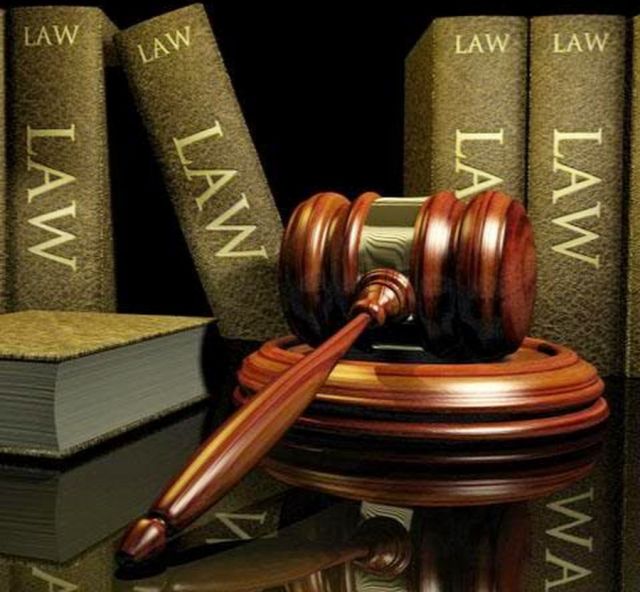CASE TITLE: Paltoo Ram Yadav vs. State Of U.P. And 6 Others [WRIT C No. 10192 of 2023]
DECIDED ON: 18.08.2023
CORAM: Hon’ble Dr. Yogendra Kumar Srivastava,J.
INTRODUCTION
The Allahabad High Court has ruled that the option of revision, as outlined in Section 210 of the U.P. Revenue Code of 2006, can be pursued in response to a conclusive decision made by the Commissioner through an appeal under Section 207 of the same Code.
The panel, presided over by Justice Dr. Yogendra Kumar Srivastava, emphasized that the term “proceeding decided,” as stipulated within Section 210 of the Code, encompasses the ultimate judgment rendered by the Commissioner during the appeal process.
FACTS
The Petitioner and private Respondents collectively acquired ownership of a property in segments through separate registered sale deeds. These acquisitions led to their joint recognition as co-sharers in revenue documents. The Petitioner initiated legal action under Section 116 of the Uttar Pradesh Revenue Code, 2006, seeking the division of the shared property. This legal proceeding resulted in a one-sided decision due to the Respondents’ failure to submit a written response.
Subsequently, the Respondents filed an application for reconsideration, which was dismissed. Following this, they filed an appeal in accordance with Section 207 of the aforementioned Code, challenging both the default decree and the denial of the reconsideration application.
Commissioner Azamgarh granted approval for the appeals and invalidated the default decree on the basis of it being passed in absence of the Respondents. Moreover, the swift dismissal of the recall/restoration application was criticized by the Commissioner for not taking into account the case’s particulars. The Commissioner also highlighted that the lower court’s observations were untenable given that the property was obtained through sale deeds rather than inheritance.
The private Respondents raised a concern about the appropriateness of the writ petition against the Commissioner’s order, asserting that the Petitioner had a statutory option of seeking revision under Section 210 of the U.P. Revenue Code, 2006, in response to the Commissioner’s role as the First Appellate Authority.
The Petitioner contended that the Commissioner’s decision merely constituted a “simple remand” and didn’t involve any deliberation on the merits of the case. Consequently, the Petitioner argued that the option for revision was not applicable in this scenario.
CASE ANALYSIS AND DECISION
The Court determined that the Commissioner’s order, due to its comprehensive examination of the case’s merits, cannot be categorized as a mere “simple remand.” As the matter was remanded for a fresh hearing with both parties given the opportunity to present evidence and arguments, the order carries a finality.
Given the remand nature of the order, the provision in Section 209(e) of the Code bars any statutory appeal against the order. This prompted an inquiry into whether the revisional jurisdiction under Section 210 of the Code could be invoked against the remand order.
Justice Srivastava highlighted the term “proceeding decided” found in Section 210 and underscored that the word ‘proceeding’ within this context holds a broader meaning than ‘case’.
Examining the structure of Section 210, the Court stated:
“The admissibility of a revision would hinge on two factors: first, it must pertain to a suit or proceeding concluded by any Revenue Court subordinate to the Board or Commissioner; second, it should involve (i) an exercise of jurisdiction not legally granted, or (ii) failure to exercise a legally endowed jurisdiction, or relate to any ‘suit or proceeding decided’, not subject to appeal. Once both these conditions are satisfied, it cannot be contested that the revision is not admissible. The decision to utilize the jurisdiction to intervene in orders issued by subordinate Revenue Courts in a suit or proceeding concluded hinges on the circumstances revealing a jurisdictional error in a specific case.”
Recognizing that an appeal is an extension of a lawsuit, the Court argued that the term ‘proceeding’ should also encompass proceedings at the appellate stage.
“Consequently, in order to invoke the revisional jurisdiction under Section 210, ‘proceeding decided’ is seen to cover more than a ‘suit decided.’ It should not be restricted solely to the entirety of proceedings within the course of a lawsuit. Construing ‘proceeding decided’ as comprising only the entirety of proceedings rather than a segment of a proceeding would amount to restraining the exercise of revisional jurisdiction, which is not in line with Section 210’s intent.”
In conclusion, the Court established that the Petitioner had the option to approach the revisional authority and subsequently dismissed the writ petition.
“PRIME LEGAL is a full-service law firm that has won a National Award and has more than 20 years of experience in an array of sectors and practice areas. Prime legal fall into a category of best law firm, best lawyer, best family lawyer, best divorce lawyer, best divorce law firm, best criminal lawyer, best criminal law firm, best consumer lawyer, best civil lawyer.”
Written by- Mansi Malpani


